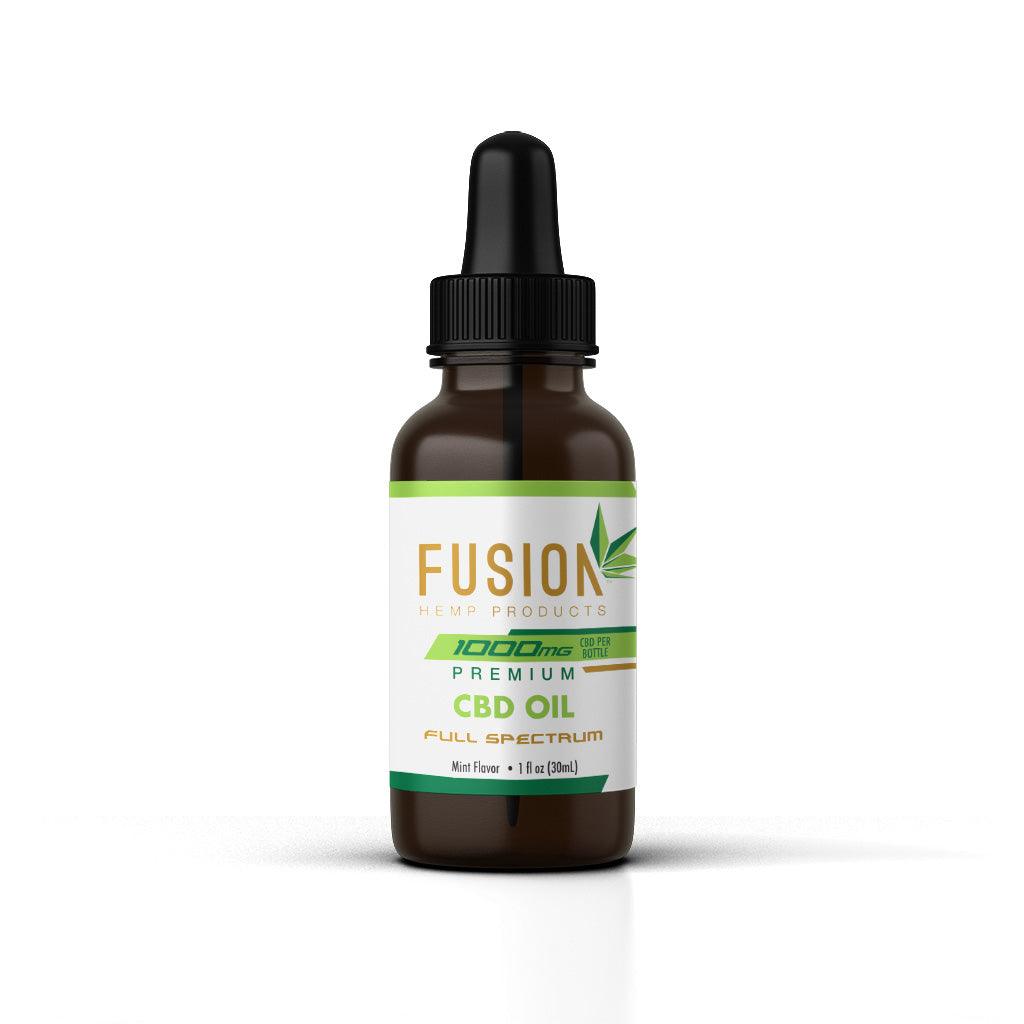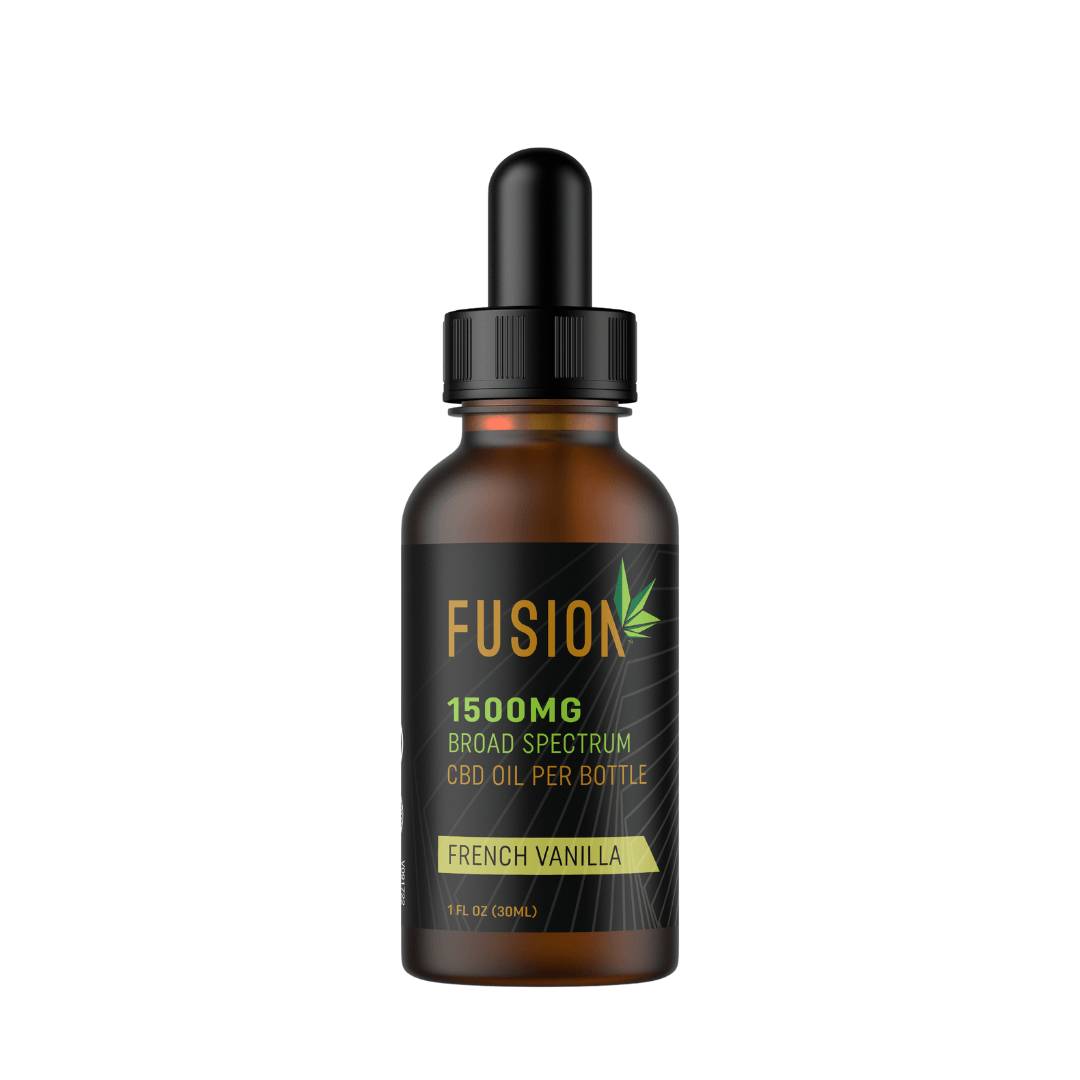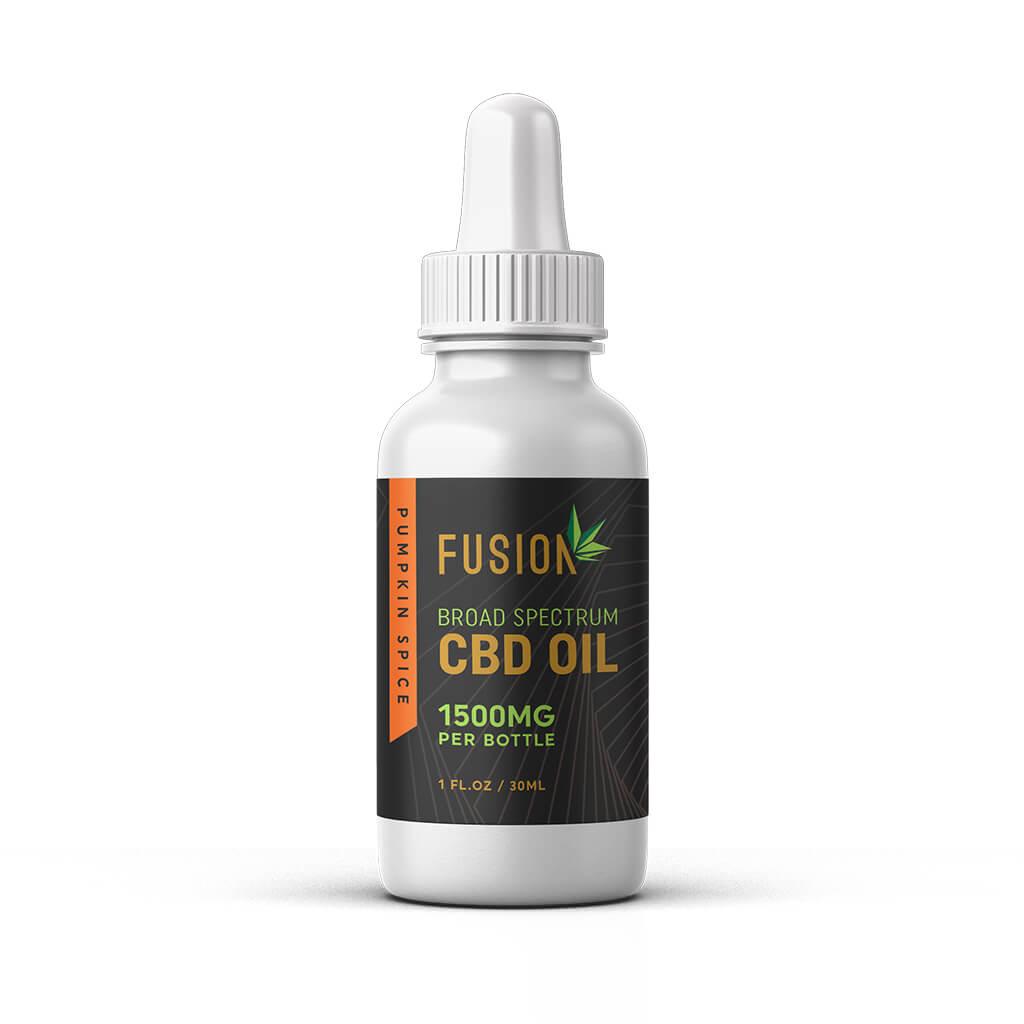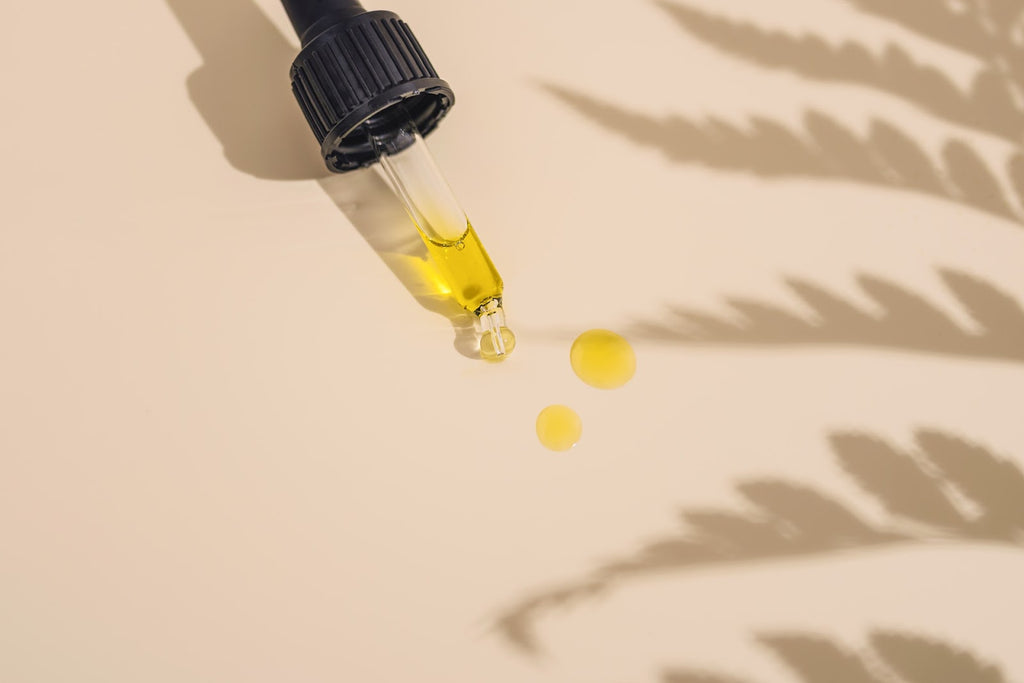News
Best CBD Oil: A Full Guide to Cannabidiol Oil
The popularity of CBD oil has skyrocketed, especially since the approval of the first cannabinoid-based drug by the Food and Drug Administration (FDA). But with so many different CBD oil products on the market, it is hard to decide which one to go for.
Having a lot of options to choose from is okay; the problem is that many of the products on the market are either ineffective or unsafe. According to a recent study, around 70% of CBD oil sold online is mislabeled.
That’s why here we provide you with all the information you need to find safe and effective brands and enjoy CBD oil without worries. Whether you’re just about to start using CBD oil or want to upgrade your current use, this guide can help you navigate the confusion.
Check Out Fusion CBD Products

Full Spectrum CBD Oil (1000mg)

French Vanilla Broad Spectrum CBD Oil

Pumpkin Spice Broad Spectrum CBD Oil
What Is CBD Oil?
CBD oil, also known as Cannabidiol, is a natural extract derived from the hemp plant. After the CBD is extracted, it is mixed with carrier oils such as coconut or olive seed oil to create CBD oil.
Cannabidiol is usually sold as oil but is also available as extracts, liquid vapors, and capsules containing oil. Among the many CBD-infused online products are foods, drinks, and beauty products. Some creative users even use CBD oil for culinary baking!
Cannabidiol appears to be beneficial for various conditions, but research supporting these benefits is still limited. CBD appears to have the potential to manage the following conditions:
- Parkinson’s disease
- Schizophrenia
- Anxiety
- Diabetes
- MS (Multiple Sclerosis)
- Insomnia

CBD vs THC
Compared to THC, another prominent compound found in marijuana, CBD is not psychoactive and does not produce a “high.” Instead, CBD is often used for its potential benefits, including reducing anxiety, pain, and inflammation.
CBD and THC have potential benefits, but CBD is safer for several reasons. First, CBD won’t affect motor skills or cognitive function. Second, CBD is an anxiolytic (a means of reducing anxiety) and antipsychotic, whereas THC might make you feel paranoid.
How Does CBD Oil Work?
Our body has a cell signaling system called the endocannabinoid system (ECS). This system has multiple receptors throughout the body that respond to our naturally occurring cannabinoids.
By doing so, ECS can regulate essential physiological processes such as appetite, the immune system, sleep, pain, inflammation, and so much more.
CBD, which also is a cannabinoid, can trigger the ECS receptors and help to produce the same responses. This helps the endocannabinoid system to work more functionally, and relieve pain, anxiety, inflammation, and more.
How to Choose the Best CBD Oil?
When choosing the best CBD oil for your needs, you should consider several factors, mainly due to the fact that the FDA does not regulate CBD products.
To help you choose the best CBD oil, here are some of the factors to consider:
COA Availability
Some manufacturers use these terms (full-spectrum, broad-spectrum, and isolate CBD) interchangeably since no strict regulations govern their use. Therefore, checking the Certificate of Analysis (COA) of CBD products is advisable.
COA is a document provided by a third-party laboratory that confirms whether or not the product (in this case, CBD oil) meets the specifications advertised on its label.
Source and Quality of CBD Oil
Despite not having specific rules regarding CBD oil, there are certain regulations for using Cannabis Sativa plants you should be aware of.
To comply with these rules, plants used to make CBD must contain extremely low amounts of THC (less than 0.3% by dry weight). Moreover, it is essential to ensure that CBD oil is sourced from hemp plants grown in the United States.
Brand
Choosing a trusted brand is essential when buying CBD products and oils. A faulty manufacturing process or incorrect labeling can mean contamination or unwanted effects from THC content in your CBD isolate or broad-spectrum CBD oil.
Types of CBD Oil
Three types of CBD oil products generally dominate the market:
Full-Spectrum CBD Oil: Full-spectrum CBD oil contains all chemicals in the Cannabis Sativa plant, including CBD, THC, and other cannabinoids, flavonoids, terpenes, and essential oils. Legally the THC concentration must be less than 0.3% by dry weight. Thud, full-spectrum products shouldn’t be intoxicating.
Broad-Spectrum CBD Oil: Broad-spectrum CBD oil contains all the chemicals of the Cannabis Sativa plant (same as the full-spectrum) except THC. Broad-spectrum CBD oils are entirely THC-free or might include less than 0.01% THC by dry weight (usually mentioned on the label).
Isolate CBD Oil: CBD isolate, or pure CBD oil is extracted using unique techniques to ensure that it only contains pure CBD and nothing else. These CBD oils are entirely THC-free and don’t contain any other cannabinoids or chemicals that naturally occur in the Sativa plant.
Hemp Oil vs CBD Oil
CBD oil is extracted from the hemp plant and is sometimes called hemp oil. But it is not the same as hemp seed oil. In fact, CBD oil and hemp seed oil are different products with different effects and uses.
As we mentioned before, CBD oil is extracted from the stalks, leaves, and flowers of the hemp plant, and its main ingredient is cannabidiol (CBD).
Hemp seed oil, on the other hand, comes from the seeds of the same plant and doesn’t contain CBD. Still, it’s packed with nutrients, fatty acids, and bioactive compounds.
Tips for Buying the Best CBD Oil
Unfortunately, up to this day, no precise product labelling regulation exists in the United States. Considering the wide variety of CBD oils on the market, the lack of regulation causes serious concern.
In a study of 84 CBD products purchased online, more than a quarter contained less CBD than stated on the label. Additionally, 18 of the products included THC. So it is very important to do thorough research before buying any product.
To ensure you’re choosing a safe product, consider the following:
- No solvents are used during the extraction process
- It is certified as organic by the US Department of Agriculture.
- The product has undergone pesticide and herbicide testing.
- The label indicates its potency.
Moreover, always remember to check with your doctor before using CBD, especially if you have any medical conditions or take any medicine.
Vaping CBD: Is It Possible?
The answer is yes, vaping CBD is a reality and it may be your best choice if you want quick pain relief. Vaping CBD has the fastest onset of all consumption options, and you can feel its effects right away.
As some people use CBD daily to prevent migraines, those who feel one is coming on might consider vaping to deliver CBD fast enough to stop it quickly in its tracks.
Regarding its safety, unfortunately, we don’t know whether it is safe to vape in the long term or not. If you aren’t looking for immediate pain relief, you might be better off with another option, like CBD tinctures, creams, or capsules.
Determining the Right Dose
“Begin small and go slow.” Take 10 mg of the active ingredients two hours before going to bed. Increase the amount a little and observe how you feel. Reduce the amount if you don’t feel any additional benefit. The sweet spot is likely between 10 and 40 mg per day.
Final Words
CBD oils do not typically cause a high since the amount of THC found in them tends to be very low. There are numerous potential health benefits associated with CBD, but as research is limited, scientists still need to study them.
Of all the things to consider, finding a CBD oil that suits your personal needs is the most important. Determine what type of CBD oil is the most effective for your condition. And lastly, don’t forget to obtain your product from a reliable source!
Frequently Asked Questions
Is CBD Oil Legal in the US?
The answer to this question can be tricky. There are various legal CBD products on the market, and there are also illegal ones. The legality of CBD oils depends on their source. Only CBD products sourced from hemp grown in the US with a license and permit under the Farm Bill are legal. However, since the laws can vary based on your state, it is best to check your state’s laws.
Can I Get High From Full-Spectrum CBD?
CBD, by itself, is not psychoactive and can’t get you high. THC, on the other hand, produces the high feeling associated with marijuana use. Although full-spectrum CBD oil contains THC, it is less than 0.3%, so it can’t make you feel intoxicated.
Is CBD Oil FDA Approved?
CBD products, including CBD oils, have not yet been approved by the FDA. FDA approval is currently only granted to one CBD product called Epidiolex, which is a drug approved for two types of epilepsy.
Does CBD Oil Have Any Side Effects?
In general, CBD oil and other related products are safe and have minimal side effects. However, several extensive studies on Epidiolex, a CBD drug for epilepsy patients, reported a few side effects, including, sleepiness, lack of appetite, diarrhea, and elevated liver functions.
Which CBD Oil Can I Trust?
There are several factors to consider when choosing a CBD product. But overall, you should only trust CBD oils extracted from naturally-grown hemp with a COA confirming the absence of heavy metals, pesticides, and molds. Third-party test results by laboratories compliant with ISO 17025 can be also helpful in choosing a quality product.
